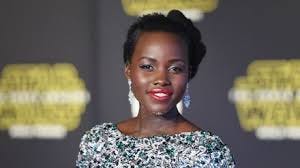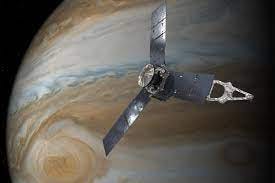The Great Unknown
Life's mysteries, our parents' parenting books, and big dick energy (in space!).
I just added an option to support my newsletter dollars-wise! You’ll still get it all either way, but please consider donating towards quieting the “I just put myself out there!!!” internal panic I am now experiencing as a result.
It has come to the very edges of my attention this week that Richard Branson, who we love because he has made a lot of money even though he is dyslexic and ADHD, but who also is too rich to be an actual good person, has finally made it to space.
I have never quite understood the human race’s obsession with the cosmos. It is cool yes, that Saturn has rings and that Earth seems to be the only planet with sustainable life in our solar system and black holes swallow things. Super cool. But the intensity, pervasiveness, and expense of our reverence for space has always struck me as a symptom of the out-of-whack priorities of a male-dominated society, rather than a given priority of being human. Why do we have to conquer space? Why do we have to race to get there? Can't we let space remain a mystery and spend a little more energy getting everyone on Earth clean water and steady supplies of peanut butter and the very affordable cures for the things that most people die of?
On a recent trip to the planetarium with my son, I got a terrible headache from holding my heavy-ass skull at an unnatural angle. I also learned a lot about space! It was mostly pleasant and somewhat interesting, though I felt like I often do when people around me, usually men, discuss facts and I try to nod along and sound informed, but really I can’t wait until we are done and can talk about everyone’s feelings for a change.
The divine Lupita Nyong’o, who deserves an Oscar-nom for her riveting narration of a mediocre planetarium video, explained how people believe the planets were formed, and what we know about Jupiter’s atmosphere from taking like, 100 years of space photos, and some other stuff that my growing headache made it difficult to retain. When we got home and talked about what we had learned, my husband pointed out that these are all mostly just plausible theories, but we actually know very little.

This is science, I suppose, in the same way that the educational research studies I have immersed myself in and even, at times, conducted, are science. When you train teachers on how to read interactively with children, some of those children are, at a single point in time and by some measures, better readers, at least a little bit, than the kids whose teachers did not get trained. A bunch of college students in a room take a test and the ones who are told that intelligence is not something you are born with, but rather a muscle that can be flexed and grown, do marginally better. It's interesting. It’s could be related to some real-world things, and might give us an idea of what impacts those things. But a lot of dots need to be connected to say for sure that A guarantees B. Even a million-dollar camera can only capture so much.
I am spending much of the summer in my childhood home in Cambridge, Massachusetts. Some things have changed. The neighborhood, once funky and flawed and diverse along several lines, is now filled with multi-million-dollar condos no one lives in, freshly paved sidewalks, and eerily manicured lawns. The Oxford Spa, where Layla Schlack and I shared a $3 turkey sub pretty much every day after middle school, is now a creperie (Layla always paid — I estimate that, with inflation, I owe her about $5,000, or the price of six crepes). The run-down Volvos are now brand-new Teslas. But my little bedroom is still painted the super rad maroon color I selected 25 years ago and covered in my self-important amateur photography. And even though we have a perfectly comfortable dining room table, everyone still prefers to eat around the kitchen island, standing up. I still forget that if I use the lavender Dr. Bronner’s soap in the shower to wash my lady parts, they will tingle uncomfortably. And my parents’ bookshelves are filled with the same books I remember from when I was a wee girl.
There are novels and books of poetry: Alice Hoffman and Barbara Kingsolver, Haruki Murakami, Wendell Berry. There are insider-Jewish staples: The Collected Stories of Shalom Aleichem, In The Shadow of The Holocaust, and The End of the Jews. There are feminist tomes: A God That Looks Like Me: Discovering a Woman-Affirming Spirituality and Surviving Ophelia. But there are, as far as I can tell, no parenting books. I spy Queen Bees and Wannabes, most likely purchased during the dark “mean girls” period I experienced during eighth grade, when Layla Schlack and I had a falling out. I know that, like any good liberal parent of the 80s, my mother read How to Talk So Kids Will Listen & Listen So Kids Will Talk. My parents were not perfect, but they made a lot of sound choices on behalf of their children, in big and small ways. They were both therapists, and I’d imagine felt pretty confident about their skills with children, and weren’t desperate for advice. But there were also, in my mother’s memory, and in actual fact, not that many parenting books back then. There were certainly no mommy blogs. There was probably only one kind of bottle.
I am not especially nostalgic for the parenting of the past, and while I agree there’s a lot we could learn from parenting across cultures and from ancient approaches to raising children, it’s safe to say that there’s just as much wrong with any style of parenting as there is right. I’m glad we know that washing a child’s mouth out with soap is not the most effective way to curb foul language, that learning disabilities are not a death sentence, and that talking to kids about sex is a good thing. But sometimes I worry that what we’ve learned about parenting in forty years is not enough to justify all of the noise we’ve added to the experience of raising children. I worry, too, that our efforts to analyze and optimize parenting have given us the wrong impression about what this whole thing is about.

We don't really know how a planet becomes a planet. We have watched the rocks around Saturn's rings get larger and larger over long periods of time as they circle around it, some of them disintegrating but others staying sturdy and maybe, just maybe that's how the moon was made and maybe it's how the Earth was made and wouldn’t that be cool if we knew for sure or at least kind of talked about it like we did?
Sometimes I wonder if parenting is like space. I don't think women are blameless, but it is suspicious that once parenting came to the attention of men and the free market it became something to be conquered, a race. I'm not saying we were better at it 40 years ago, but perhaps we were more humble about what we could accomplish and about how much someone else’s parenting was our business.
Some kids are deprived of screens and never develop a habit. Others are deprived of screens and become addicts as soon as they have any control over their own lives. Some kids spend hours a day on a screen and fall into deep, impenetrable fortresses of isolation and depression. Other spend hours a day on a screen and have rich, fulfilling social lives. There are things that are worth assuming or trying in this, ways of thinking that can help parents navigate something as murky as their child’s relationship to technology, but instead of saying “this is really hard and new and confusing and every child and family will need a different approach” we say “Unplug Your Kids!” And all of this putting the onus on parents distracts from the systemic forces that are doing everything they can to commodify our children’s attention spans, just like the endless quest for life on other planets distracts us from life on our’s.
The space race is a unifier, encouraging national pride, but it is also a platform for American individualism. One man on the moon, no love for the dude who stayed in the ship. Branson and Bezos and Musk swinging their space-dicks and jockeying for first to fuck a supernova. The race to be a “great parent” also pits us against one another — the dad who yelled “great job carrying your baby!” when I was once walking with my son in a poorly-fitting Moby wrap was really saying “fuck all those other parents who put their kids in strollers, those kids will never be as well-adjusted as ours.”
My son, who is into homophones these days, asked me if “son” and “sun” were the same word. I couldn’t resist the poetry in this. I am pretty sure that most people love outer space. They love reading about it, thinking about it, they even love the planetarium, stiff-neck or no. I think all of us, even the ones who don’t have the capacity to demonstrate it, love our children. But I don’t think that to love something, I must understand it. Can’t I look up at the stars and say “holy fuck!” and then turn my attention back to my little community? Can’t I fail and flail and still find my footing as a parent without worshipping at the altar of some new philosophy? Can’t we admit we have no clue about any of it all? We’re just balls of gas and rock and ice, spinning around the sun.








one kind of bottle, old volvos, space-dicks, difficult baby wraps, the mystery of parenting and doing things "right." ALL the things. soo good. my kids have so many qualities that are really great (esp. as adults) but quite hard to parent. you know? 'm presently trying to cut down talking to my partner every night about my worries about my children, just to see if that helps my psyche and perhaps overall house vibe. may i find the fun again! it's been a year. and i'm still me. thank you for these! you're an excellent writer!